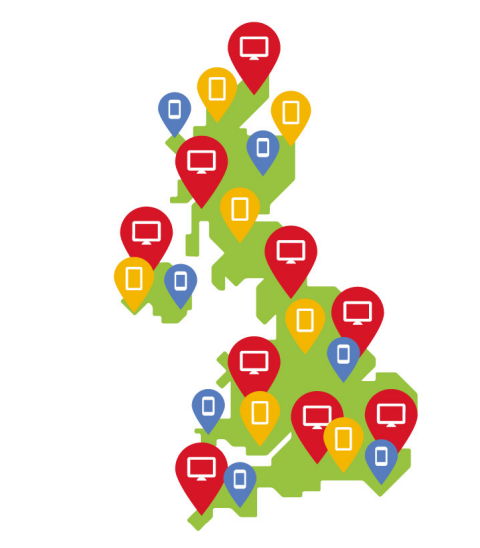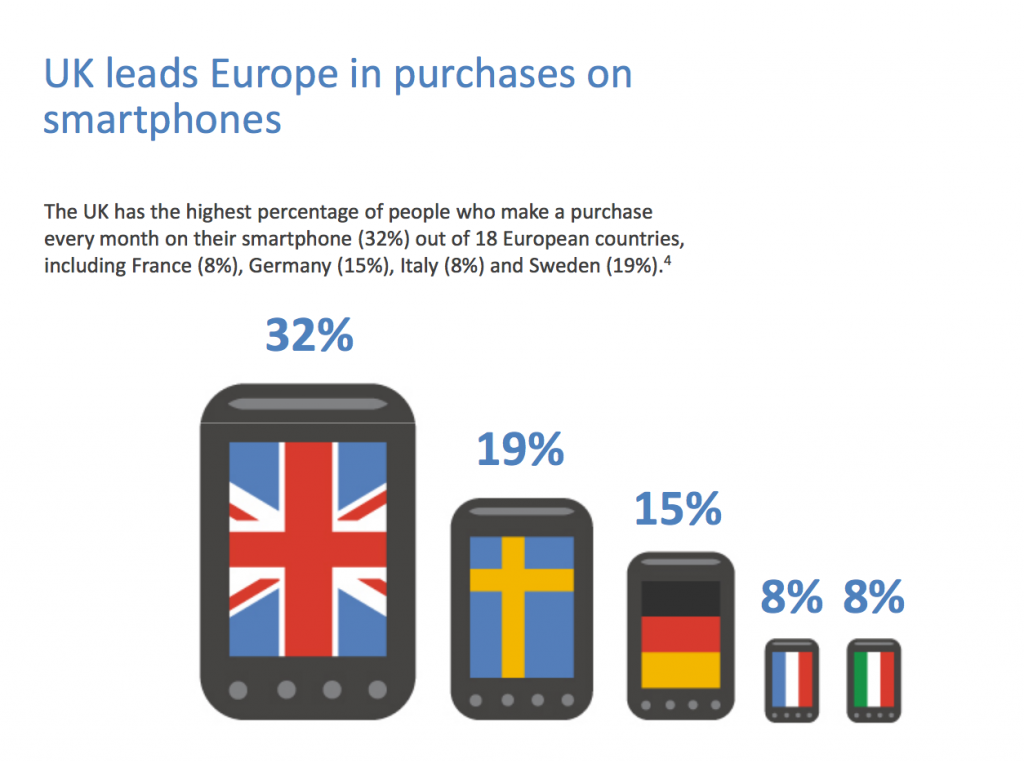The Brits, it seems, are leading the way when it comes to embracing our smaller screen devices for shopping.
And with this phenomenal surge in consumers buying on a host of different devices comes an overwhelming opportunity for brands to position themselves in the pockets of their potential customers to win sales and fans.
We’ve pulled together some of the most recent statistics that highlight the multi-screen opportunity for businesses in the United Kingdom.
We own a lot of devices and we use them for shopping
- The average person in the UK owns 3.1 devices. [Source]
- 90% of consumers move between devices to accomplish a single goal. In 67% of cases, consumers stated this goal as shopping. In other words, it’s highly likely that your potential customers start their purchasing journey on one device and complete it on another. [Source]
The UK is leading the way in multi-screen in Europe
- 32% of consumers in the UK make at least one purchase per month on their smartphone devices. This puts us head and shoulders ahead of second-placed Sweden (where 19% of consumers make at least one monthly purchase on their smartphone) and 3rd placed Germany (15%). [Source]
- 61% of people in the UK use their smartphone to research or purchase a product. In other words, for well over half of consumers, their smartphone plays a role in the purchase of products. [Source]
- Across the whole of Europe, it’s expected that m-commerce will top a whopping £20 billion over the course of 2014. [Source]
So many businesses are still not ready
- 36% of the top 100 brand websites in the UK are still not yet ready for mobile – this in spite of the continued growth in multiscreen consumers.
- 46% of the UK’s top 50 finance companies are not specifically optimising their search campaigns for mobile device users.
The multi-screen opportunities and challenges
If your potential customers have more than three devices on average, then your challenge is in making sure you know which devices those are, that your marketing campaigns are tailored accordingly and that your digital assets (our websites, apps and content) are optimised for the devices that your audience or potential customers are using.
Get it wrong, and your customers may well just go elsewhere.
Figures from 2017 suggest that 61% of consumers who end up on a non-mobile friendly site when on their smartphone would be likely to go off to a competitor’s website.
Get it right and you have the opportunity to engage your consumers across a host of different devices, be present throughout their research process and secure the sale at the point of purchase.
What’s clear is that multi-screen is not a fad.
Smartphones and tablets are giving desktops and laptops a run for their money. And the modern consumer is increasingly willing to embrace new and emerging technologies.
It’s not about being “mobile ready.” It’s about being “multi-screen ready” – making sure your business caters to your customers whatever their screen size.




